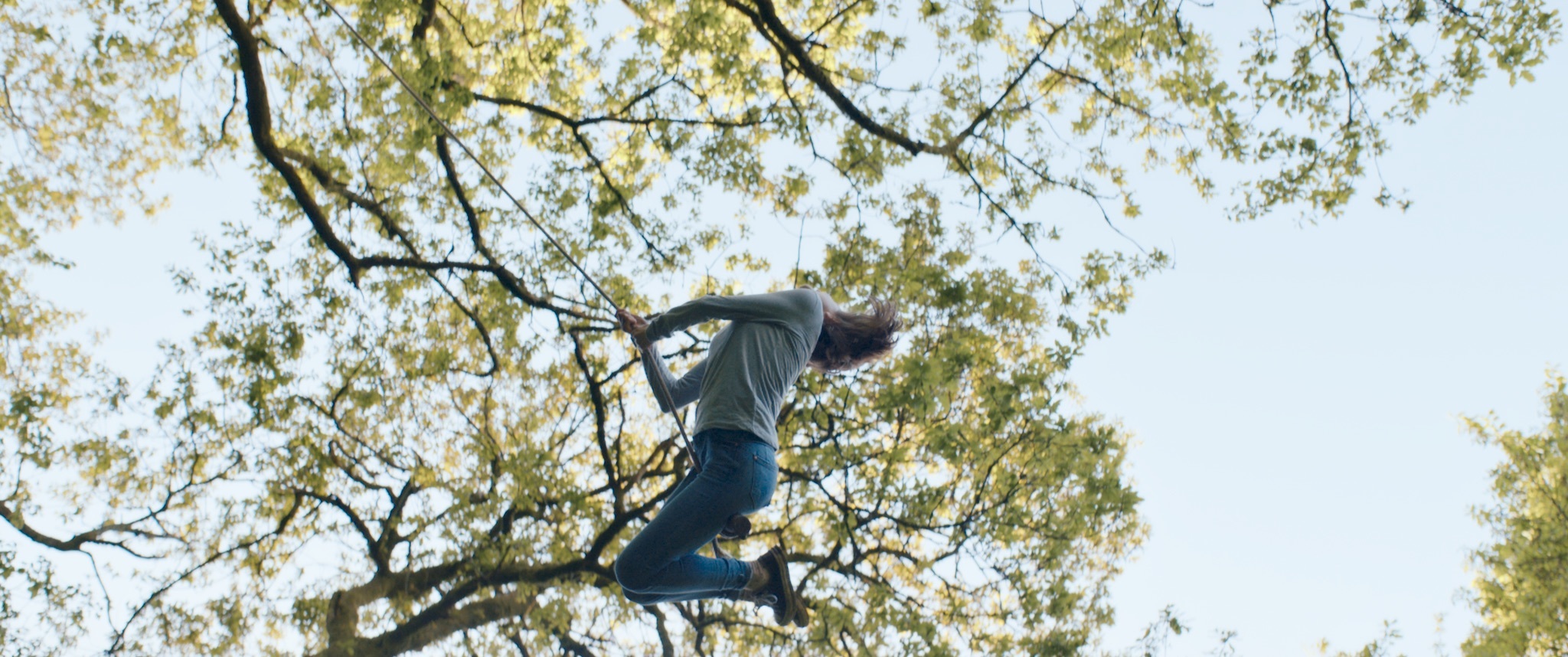
Case Study: Bellmouth
Joe Roberts about his short Bellmouth.
Geplaatst op 18 augustus 2019
Having burnt a hole in the roof of the house at the age of 13, shooting his first short film, entitled Fire-God, Joseph has been
making and creating films from a young age. His first foray
into ‘incident-free’ film-making began in London's live music
scene, creating acclaimed performance documentaries for acts such as
Q-Tip, Tinie Tempah, Weezer, Kate Tempest and Jurassic 5. Since then, his love
for music, poetry and comedy has informed and framed Jospeh's lyrical
realism, wry visual humour and cinematic style. He has won loads of
awards for his commercial work but feels most at home when telling a
story. Taking what he has
learnt from capturing authenticity in documentary, his approach to
shooting drama infuses realism and improvisation to create authentic
emotion for film.
Bellmouth is
Joseph's first dramatic short film.
"You have to be dogged, blinkered and stubborn. There’s so many opportunities in the pre production for you to give up that you have to be very strong willed. No one else cares if you make it or don’t make."
The creation process
"I wrote the script for Bellmouth in the summer of 2016. There was the summer Olympics on TV and I was recovering from a knee operation. So I was sat on my bum for a good three weeks. On the news there was the crisis in Calais, The 'Calais Jungle', a network of tents housing people who needed refuge and relief. On the other channel was a TV coverage of the UK’s biggest music festival, Glastonbury. There was more footage of tents but this time it was full of festival goers, people camping for fun. The comparison was stark and that’s where the initial idea for Bellmouth came from."
"The
first draft of the script came in one go, in an afternoon. I
essentially closed my eyes, turned on the film projector in my mind
and then wrote down what I saw. Additional ideas popped up later in
the creation process but it all felt quite organic. What that
resulted in was a very wordy, overly descriptive script."
"I sent the first draft to an author and poet I’ve known for a while called Steven Camden. He was generous with his time and notes along with additional ideas and setups. Over the course of the next two months I wrote another 13 drafts. No major changes story wise, it was more moving scenes around, deleting scenes, working out the ‘flow’ and how best to tell the story subtly, efficiently and effectively. Charlie Covell, an extremely successful and award winning screenwriter, and huge supporter of this film, helped me enormously at this script stage. Charlie said that you should try and have only 3 lines of description per scene, the rest is up to the director to envisage. But since I was directing it too, the script felt part script, part script interpretation."
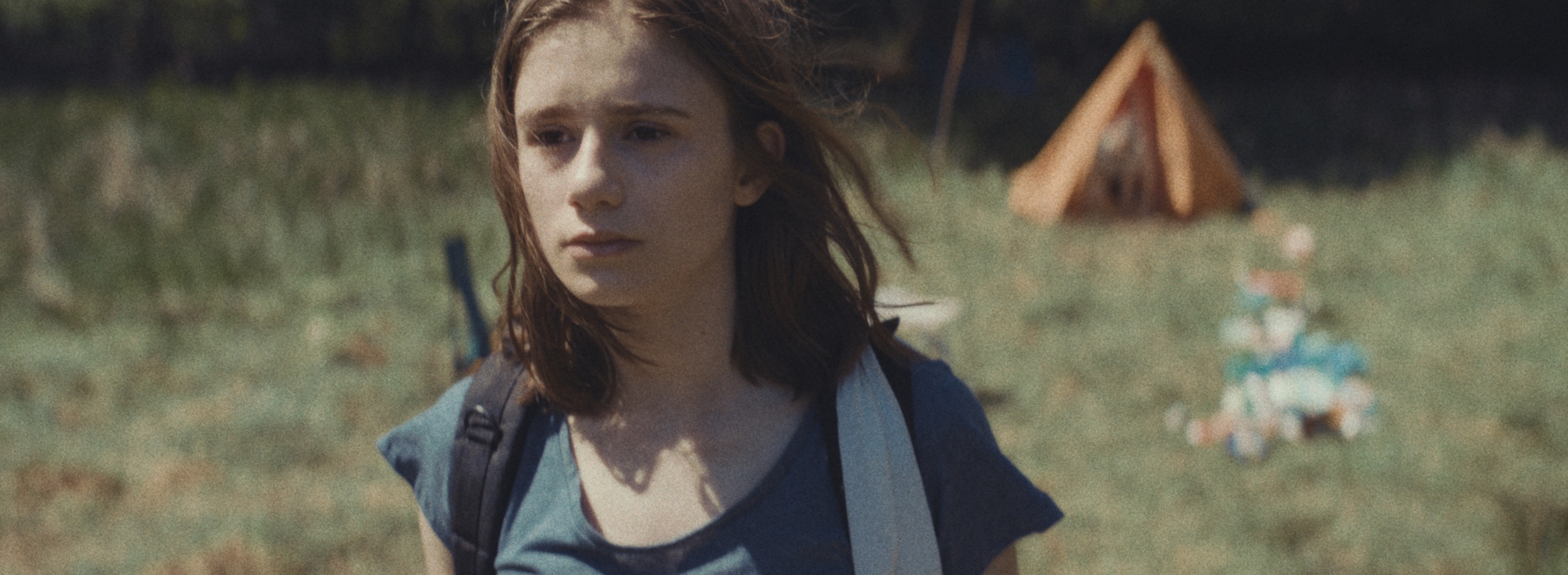
Make this film!
"Once I was happy with the
script, I made the decision that I was going to make this film. I
remember clearly setting the challenge in my head: 'Make
This Film!'. I
think you need to have that determination to make your first short
film. You have to be dogged, blinkered and stubborn. There’s so
many opportunities in the pre-production for you to give up that you
have to very strong-willed. No one else cares if you make it or don’t
make it."
"The first step to making the script a reality was to send the script to my good friend and DOP Job Kraiijeveld. Job and I had worked together a lot on commercial shoots and had spent a lot of time together wanting to do something else, something more. Bellmouth was our opportunity to do that. Together, for the next year, Job and I would meet and talk about the film, work closely creating a shot list, mood boards and watching films that inspired us. Between paid work, we would travel to the UK looking at locations where we could shoot the short. We found a small privately owned forest in deepest, darkest Devon recommended by John Hendicott, my long time sound collaborator."
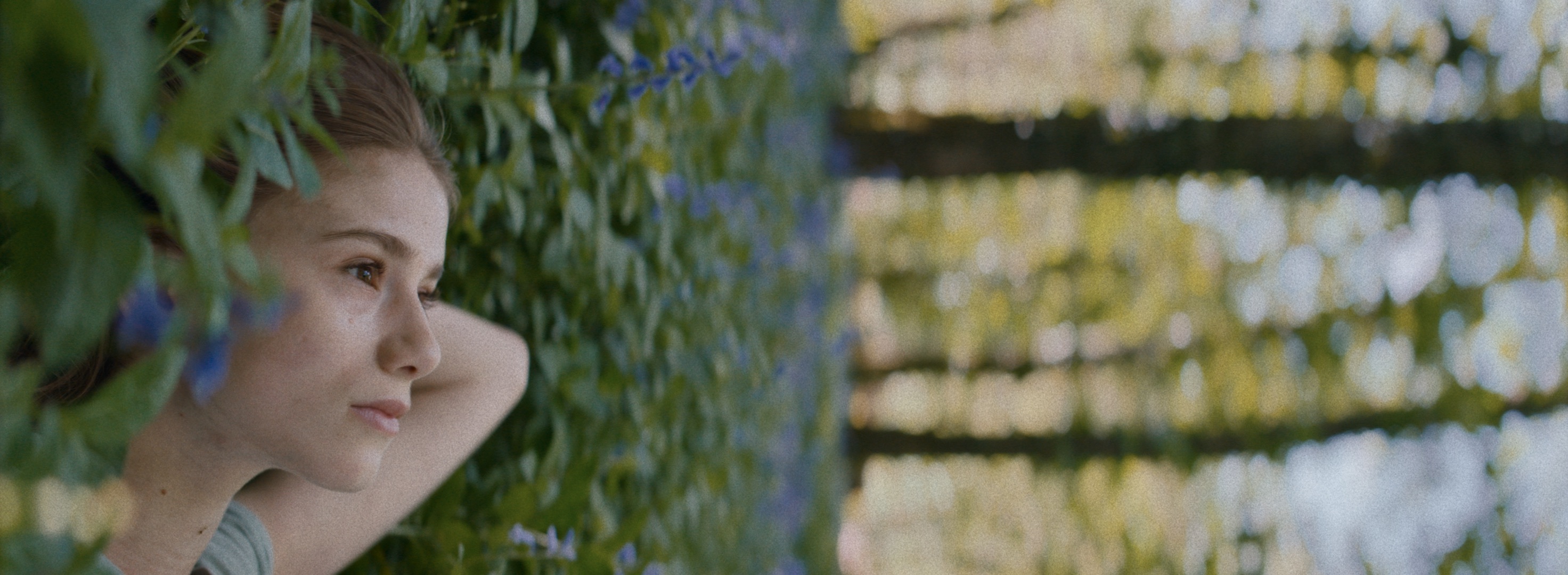
Screaming whilst being quiet
"Next to the location I knew the
most important part of this short film would be the actors. I had
directed enough commercials to know that if you get the wrong actor,
the whole shoot can fall apart as soon as you turn the cameras on. So
I contacted Ben Cogan, a casting director from the UK and spent the
next few months holding casting sessions in London for Amy. The film
was to be told through her eyes so I was keen to make sure we found
her first. Ben
emailed me after a long period of castings, saying he had been to
Nottingham and to the Television Workshop Theatre and saw a young
girl in a play there called Justine Moore. A couple of days later,
Justine auditioned for us on tape. I was sent the file. As soon as
she stepped on camera it was clear she was the Amy we had been
looking for. Saying everything through a look, screaming whilst
being quiet."
"It was now the summer of 2017, and my resolve to make this film was experiencing it’s first proper strain. I felt I needed to get a producer on board who would help me push this boulder up a hill. Sarai Carson was the perfect boulder pusherer. Sarai, Job and I had worked together on a comedy documentary job and we all had good chemistry. She liked the script, but had been producing a lot of short films and knew much more than me, the hardships involved, and especially about shooting in the countryside."
"We reached a point, working out shoot days, traveling to remote areas, putting
people up and feeding them, when we realized we needed more money than we
had budgeted for. So I turned to the crowdfunding platform IndieGoGo
to ask friends and family for cash. I was blown away and humbled by
peoples' generosity. We raised over £7000 within a month. Myself and Job paid another £10,000 for the production costs."
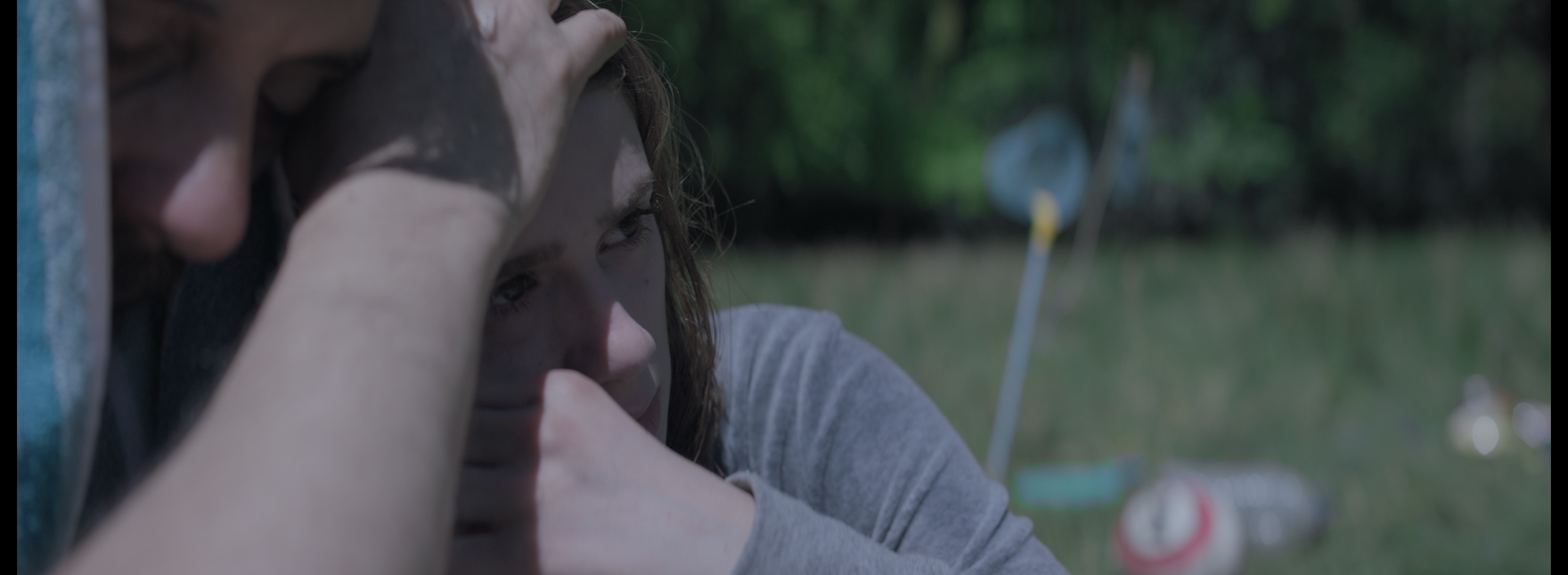
The post-production
"I started the edit in
Amsterdam with Will Judge, a friend and frequent collaborator. Over
the course of about two weeks, Will whittled the edit down from
the initial 28 minutes to 16 minutes. I wanted to make it as
short as possible, without sacrificing any of the beats, evolution of
relationships or story arcs. Will is an instinctive and honest
collaborator and he made things move more
quickly."
"I
learnt so much about the script writing process in the edit room. We
cut a lot of the script's early parts. I discovered the short
film structure leaves very little time for set up and scene setting.
The next short film project I would embark on will have a much
tighter script. Obviously you always aim to overshoot so you are not
scrabbling around for scraps in the edit, but I felt with Bellmouth
we shot too many unnecessary scenes and didn’t have quite enough
time in the scenes we ended up using for more takes and variation in
performance."
"The same experience applies for the work on the sound design with John Hendicott. We have the same taste so he worked his magic and I got to listen to it and love it. The music composition was from one of my oldest friends Johnny Parry. I’ve always loved Johnny’s music since we were 15 so to ask him to create a soundtrack was an enormous privilege. The edit and sound came together quickly and we graded the film with the wonderful Matt Hare at Ambassadors in Amsterdam."
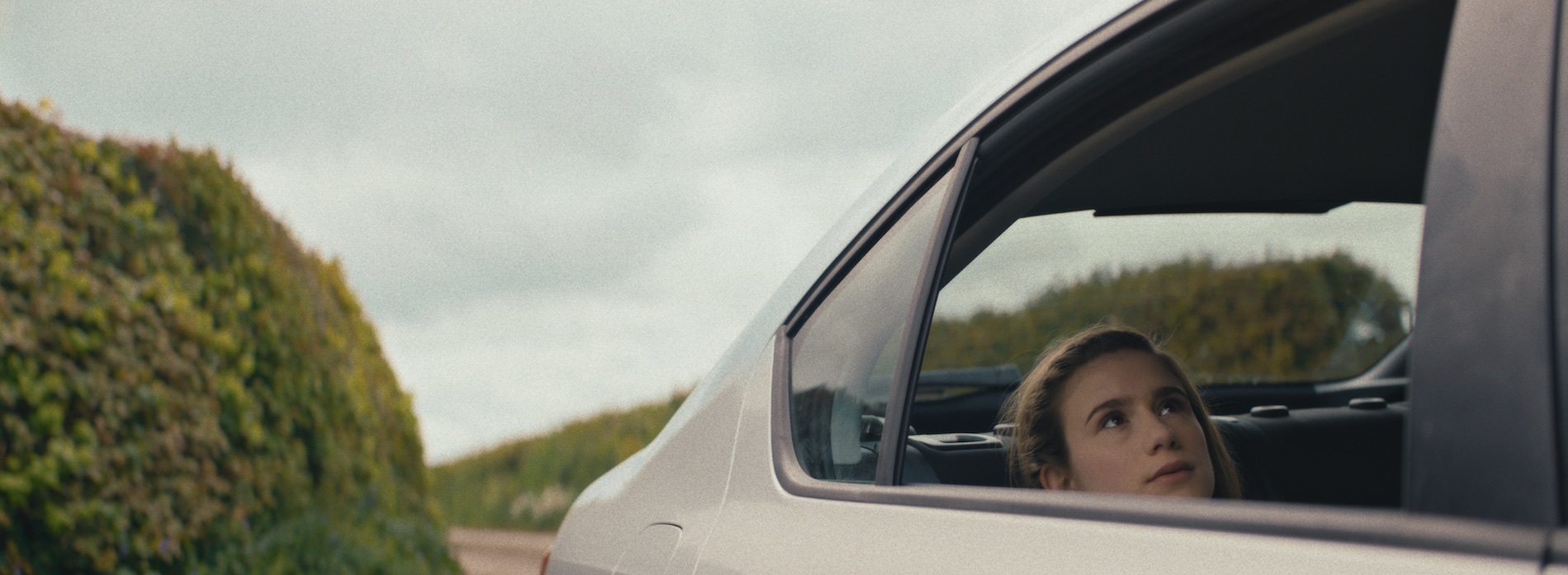
Showing the film
"Then came the crippling fear of actually showing the film to people. I had spent so long in making this film, thinking about this film, talking about this film and it was finally finished and I didn’t want anyone to see it. I didn’t want anyone to watch it for fear of them watching and thinking: ‘Oh, so that’s it?’. My wife Alice, who was the sounding board and support network throughout the entire process (as well as the shop assistant in the short film and the 3rd AD!) basically told me that this film isn’t about me. It’s about all the people who made the film happen, everyone who helped, everyone who gave money, everyone who drove down and spent a week in the forest filming the short. She told me that, a person who sits on the film in fear is doing everyone who worked so hard on it a massive disservice. So eventually I got over myself and started submitting to film festivals. And that’s how we ended up at the SHIFT Film Festival."
